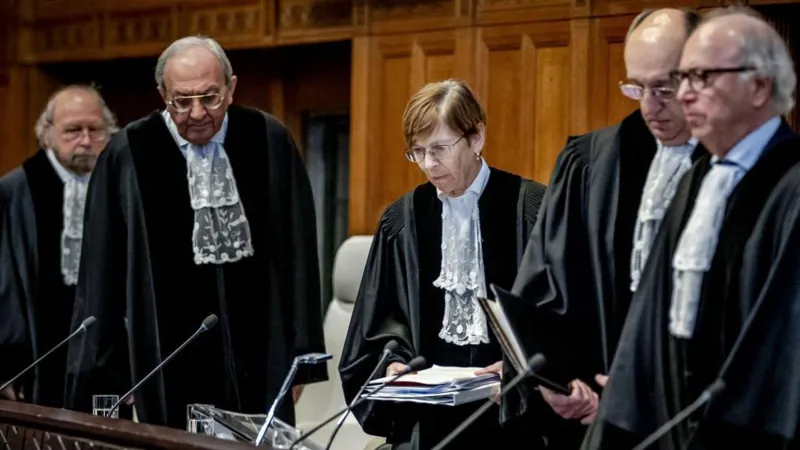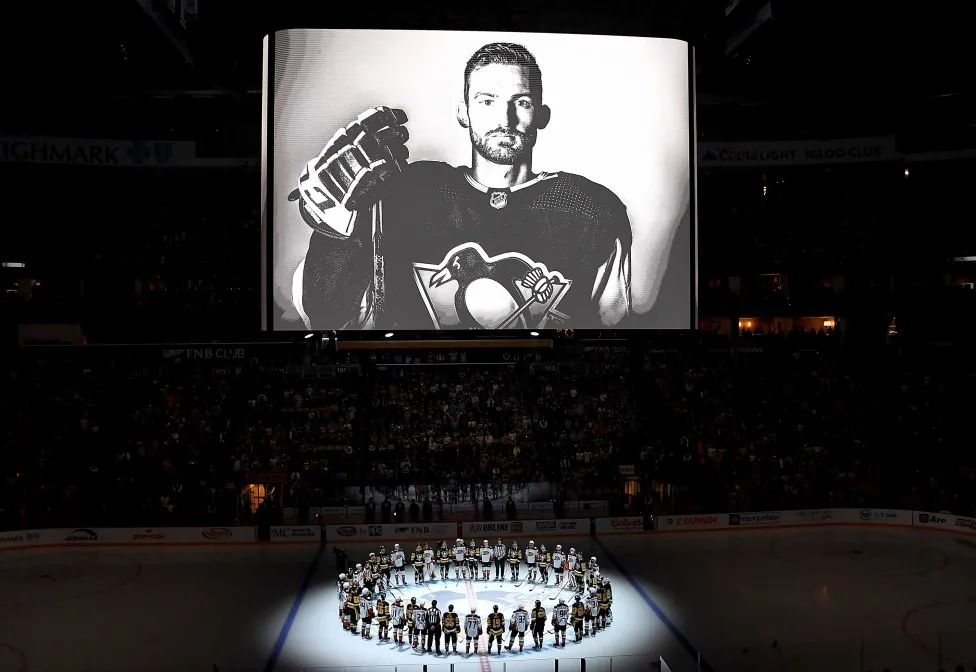What did ICJ ruling mean in South Africa's genocide case against Israel?
The UN's top court is hearing Israel's response to a case brought by South Africa seeking an emergency halt to its offensive in Rafah.

South Africa has also accused Israel of genocide in the Gaza war.
Israel, which has called South Africa's case "wholly unfounded" and "morally repugnant", responded on Friday accusing South Africa of bringing "biased and false claims".
The words of the International Court of Justice (ICJ) have been subject to intense scrutiny since South Africa brought its case and it’s centred around the use of the word “plausible” in the ruling.
In January, the ICJ delivered an interim judgement - and one key paragraph from the ruling drew the most attention: “In the Court’s view, the facts and circumstances... are sufficient to conclude that at least some of the rights claimed by South Africa and for which it is seeking protection are plausible.”
This was interpreted by many, including some legal commentators, to mean that the court had concluded that the claim that Israel was committing genocide in Gaza was “plausible”.
This interpretation spread quickly, appearing in UN press releases, statements from campaign groups and many media outlets, including the BBC.
In April, however, Joan Donoghue, the president of the ICJ at the time of that ruling, said in a BBC interview that this was not what the court had ruled.
Rather, she said, the purpose of the ruling was to declare that South Africa had a right to bring its case against Israel and that Palestinians had “plausible rights to protection from genocide” - rights which were at a real risk of irreparable damage.
The judges had stressed they did not need to say for now whether a genocide had occurred but concluded that some of the acts South Africa complained about, if they were proven, could fall under the United Nations’ Convention on Genocide.
Let’s look at the background of the case and how the legal dispute unfolded.
The ICJ was set up to deal with disputes between the nations of the world relating to international law.
That means laws that are agreed between nations, such as the Genocide Convention, a key measure agreed after World War Two to try to prevent such mass slaughter again.
Last December, South Africa launched an attempt at the ICJ to prove that, in its view, Israel was committing genocide in relation to how it was perpetrating the war against Hamas in the Gaza Strip.
It alleged that the way Israel had prosecuted the war was “genocidal in nature” because, according to the South African case, there was an intention to “destroy Palestinians in Gaza”. Israel absolutely rejected these allegations, saying the entire case misrepresented what was happening on the ground.
South Africa would need to show the court clear and hard evidence of an alleged plan to commit genocide. Israel, for its part, would have a right to examine those claims one by one and argue that its actions, in a dreadful urban war, were legitimate self-defence against Hamas, which is designated as a terrorist group by dozens of countries. That full case could take years to prepare and argue.
So South Africa asked the ICJ judges to first issue “provisional measures”.
That’s the ICJ’s term for a court injunction - an order from a judge to freeze a situation, to prevent any harm being done, before a final court finding can be reached.
The court was asked to order Israel to take steps to “protect against further, severe and irreparable harm to the rights of the Palestinian people”.
Over two days lawyers for both countries argued over whether Palestinians in Gaza had rights that the court needs to protect.
The ruling, to which 17 judges contributed (with some of them disagreeing), came on 26 January.
“At this stage of the proceedings, the Court is not called upon to determine definitively whether the rights which South Africa wishes to see protected exist,” said the ICJ.
“It need only decide whether the rights claimed by South Africa, and for which it is seeking protection, are plausible.
“In the Court’s view, the facts and circumstances... are sufficient to conclude that at least some of the rights claimed by South Africa and for which it is seeking protection are plausible.”
Having decided that Palestinians in Gaza had plausible rights under the Genocide convention, it concluded that they were at real risk of irreparable damage - and Israel should take steps to prevent genocide from occurring while these critical issues remain in question.
The court did not rule whether Israel had committed genocide - but did its wording mean that it was convinced there was a risk of that happening? This is where the dispute over what the court actually meant then took off.
In April, some 600 British lawyers including four former Supreme Court justices, signed a letter to the UK Prime Minister, asking him to stop arms sales to Israel and referring to “a plausible risk of genocide”.
That triggered a counter-letter from UK Lawyers For Israel (UKLFI). The 1,300-strong group said the ICJ had only ruled that Gaza Palestinians had a plausible right to be protected from genocide - in other words, that it had been dealing with a complex and somewhat abstract legal argument.
The dispute continued in more letters and interpretations.
Many in the first group described UKLFI’s interpretation as “empty wordplay”. The court, they argued, cannot have been solely concerned with an academic question - because the stakes were far higher than that.
And, of all places, the debate crystallised in legal sparring before a UK parliamentary committee, debating the question of arms exports to Israel.
Lord Sumption, a former UK Supreme Court justice, told the committee: “I think it is being suggested [in the UKLFI letter] that all that the ICJ was doing was accepting, as a matter of abstract law, that the inhabitants of Gaza had a right not to be subjected to genocide. I have to say that I regard that proposition as barely arguable.”
Not so, responded Natasha Hausdorff of UK Lawyers for Israel.
“I respectfully insist that reading a finding of plausible risk that Israel is committing genocide disregards the Court’s unambiguous statements,” she replied.
A day later, Joan Donoghue - now retired from the ICJ - appeared on the BBC’s HARDtalk programme and explicitly tried to end the debate by setting out what the court had done.
“It did not decide - and this is something where I'm correcting what's often said in the media... that the claim of genocide was plausible,” said the judge.
“It did emphasise in the order that there was a risk of irreparable harm to the Palestinian right to be protected from genocide. But the shorthand that often appears, which is that there's a plausible case of genocide, isn't what the court decided.”
Whether there is any evidence of such terrible harm is a question the court is far from deciding.
-bbc







